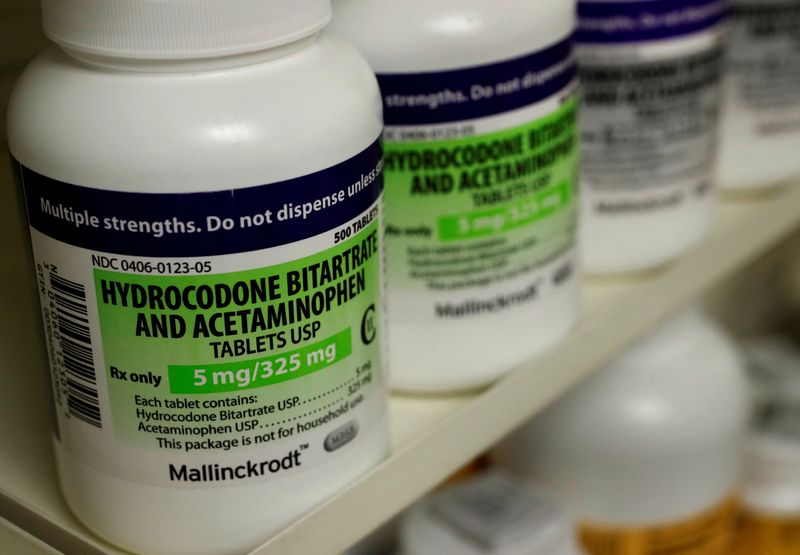By Dietrich Knauth
(Reuters) -Drugmaker Mallinckrodt (OTC:MNKKQ) on Tuesday won court approval for a bankruptcy plan that cuts $1 billion from what it must pay opioid crisis victims, cancels existing equity shares, and trims nearly $2 billion in other debt.
The Ireland-based company reached a relatively swift conclusion to its second Chapter 11, which began on Aug. 28, just 14 months after its previous bankruptcy concluded.
U.S. Bankruptcy Judge John Dorsey approved the restructuring plan at a court hearing in Wilmington, Delaware.
"With substantially less debt and additional financial flexibility, we will be better positioned for the future as we continue delivering therapies that improve outcomes for patients with severe and critical conditions," Mallinckrodt CEO Siggi Olafsson said in a statement.
Mallinckrodt, which makes branded and generic drugs, first filed for bankruptcy in 2020 to address its high debt load, litigation over its allegedly deceptive marketing of highly addictive generic opioids and disputes over its drug pricing.
Despite the previous bankruptcy settlement that resolved those litigation threats and cut $1.5 billion in debt, Mallinckrodt quickly found itself in financial trouble again due to declining sales for its key branded drugs, including Acthar Gel.
Sales of Acthar, used to treat multiple sclerosis and infantile spasms, were down 20% for the first six months of 2023 after the treatment raked in $516 million in 2022.
As part of its previous bankruptcy, Mallinckrodt, which denied wrongdoing, agreed to pay $1.7 billion to settle about 3,000 lawsuits alleging it used deceptive marketing tactics to boost opioid sales. The new bankruptcy reduces that to $700 million, all of which has already been paid to a settlement trust.
The company's opioid creditors, including state and local governments, individuals and others who will seek payment from the settlement fund, supported Mallinckrodt's fast-track second bankruptcy, agreeing to accept a reduced amount as the best deal they could get given its financial woes.
Mallinckrodt's first bankruptcy also included a $260 million settlement with federal and state government entities that accused the company of overcharging Medicaid health insurance programs for Acthar. Unlike the opioid settlement, Mallinckrodt intends to pay the full amount due under the Acthar settlement after its second bankruptcy.
The bankruptcy plan approved Tuesday will turn over ownership of the company to Mallinckrodt's lenders. It will emerge from bankruptcy with about $1.75 billion in debt owed to the lenders, which include asset managers like Deerfield Partners and JPMorgan Investment Management, court filings showed.
Dorsey overruled an objection filed by shareholder Alta Fundamental Advisers, which had argued that Mallinckrodt improperly rushed into a second bankruptcy at the expense of equity owners.
Dorsey said Mallinckrodt's second bankruptcy was "a reasonable exercise" of its business judgment in light of its near-term debt obligations, including $1 billion in opioid settlement payments and $817 million for lenders in 2025.
The reorganized company has a total enterprise value of about $2.95 billion, according to Mallinckrodt's financial advisor Guggenheim Securities.
